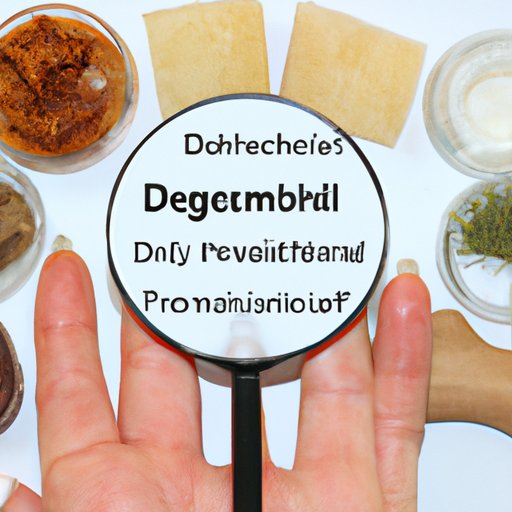
Introduction
Seborrheic dermatitis (SD) is a chronic scalp condition that causes inflammation, redness, and flaky scales. It can be uncomfortable and embarrassing, affecting one’s confidence and quality of life. While there are prescription and over-the-counter medications available to alleviate symptoms, a holistic approach is essential to finding a long-term cure. This article provides an in-depth look at seborrheic dermatitis and explores natural remedies, lifestyle changes, and integrative treatments to alleviate symptoms and prevent future flare-ups.
The “Root Cause” Approach
One of the most effective ways to treat seborrheic dermatitis is to address its underlying cause. Common root causes include overgrowth of yeast on the scalp, excess sebum production, stress, and hormonal imbalances. Identifying and addressing these root causes can help find a more comprehensive cure than solely addressing symptoms. Integrative approaches include using tea tree oil, coconut oil, and probiotics to address the fungus and bacteria that cause scalp irritation. Addressing stress and hormonal imbalances, which can be both a cause and effect of SD, can also help relieve symptoms.
The Conventional Medication Review
If the scalp condition is severe, over-the-counter and prescription medications are available. Medications such as ketoconazole, corticosteroids, and salicylic acids help alleviate the symptoms of SD. Consulting a medical doctor or dermatologist for treatment guidance is essential. Doctors may also recommend shampoos like T-Gel, which contain coal tar, and antifungal shampoos like Nizoral, Ciclopirox, or Zinc Pyrithione. It is essential to follow medication instructions carefully and to continue taking medication even after symptoms have disappeared to avoid a flare-up.
The Natural Remedies List
Natural remedies for seborrheic dermatitis can complement prescription treatments when used correctly. These remedies include tea tree oil, aloe vera, turmeric, coconut oil, and manuka honey. Tea tree oil has antibacterial and antifungal properties and can effectively reduce the growth of skin fungus and yeast on the scalp. Application of aloe vera directly on the scalp helps reduce inflammation and itching due to its anti-inflammatory properties. Turmeric has antiseptic properties and is an immune system booster. Coconut oil has natural moisturizing properties and can relieve skin dryness and itching. Manuka honey has antifungal and antibacterial properties and can take care of eczema-related symptoms. It’s essential to talk to your dermatologist before using any natural remedy and always test the remedy on a limited area of skin first.
Holistic Approach to Seborrheic Dermatitis
Due to the complex nature of seborrheic dermatitis, a holistic approach that combines various treatments is the best way to achieve a long-term cure. In addition to addressing the root cause of SD, a multi-faceted treatment approach can include alternative remedies and mental wellness to alleviate symptoms. Alternative remedies such as acupuncture, acupressure, yoga, and meditation can help relieve scalp itchiness, inflammation, and redness related to seborrheic dermatitis. It’s essential to consult a licensed professional before trying out any of these remedies.
The Diet and Lifestyle Change Strategy
Studies have shown that certain foods, including sugar, dairy, and processed foods, can trigger seborrheic dermatitis. Practicing a healthy lifestyle, including regular exercise, a low-stress lifestyle, and avoiding SD triggers, can all add up in curing scalp condition. Certain diet and lifestyle modifications such as maintaining a well-balanced diet rich in fruits, vegetables, and zinc, getting enough rest and sleep, avoiding excessive alcohol consumption, and quitting smoking may help reduce flare-ups of seborrheic dermatitis.
Conclusion
Treating seborrheic dermatitis can be challenging, but taking a comprehensive and integrative approach can be immensely helpful in alleviating symptoms and finding a cure. It is equally important to seek various treatment approaches while always consulting a medical professional with questions or concerns.




